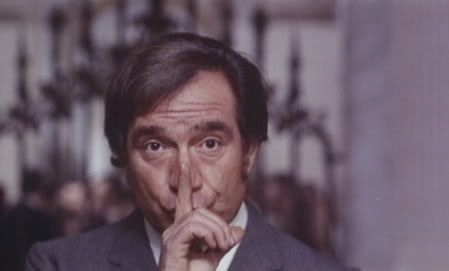99 Women (Jess Franco, 1969)
 Whether they know it or not, 99 Women is certainly what Tarantino and Rodriguez were trying to emulate with Grindhouse. Certainly my favorite women-in-prison flick I've ever seen, 99 Women centers on a remote Spanish island prison, where all the inmates have been wronged or were simply revenging themselves. Marie (Maria Rohm) is the newest, titular inmate, who gets punished and pushed around and eventually decides she can't take it anymore. Throw into the mix some truly gorgeous fellow inmates (especially Rosalba Neri as Zoe, a former stripper who killed her jealous boss in self defense), a corrupt superintendant and governor of the island, and a new, idealistic superintendant sent in by the goverment after too many deaths at the jail, and you've got an exploitation classic. But the thing I like best about Jess Franco is that he truly is an auteur -- he can take the most commonplace women-in-prison plot and make an underground classic out of it. Some of the shot composition is as good as you'd see in any "serious" foreign film of the time. The sex scenes are erotic, but never sleazy in a bad way. In an interview on the DVD, Franco talks about how this movie was financed and written on the fly, which makes it even more impressive that it's anything more than campy. But Franco sometimes pulls genius out of his ass. Check out this trailer and tell me you really don't want to see this movie (and that it just as easily could have played in between the Grindhouse movies). 8/10 Labels: 1969, jess franco |







